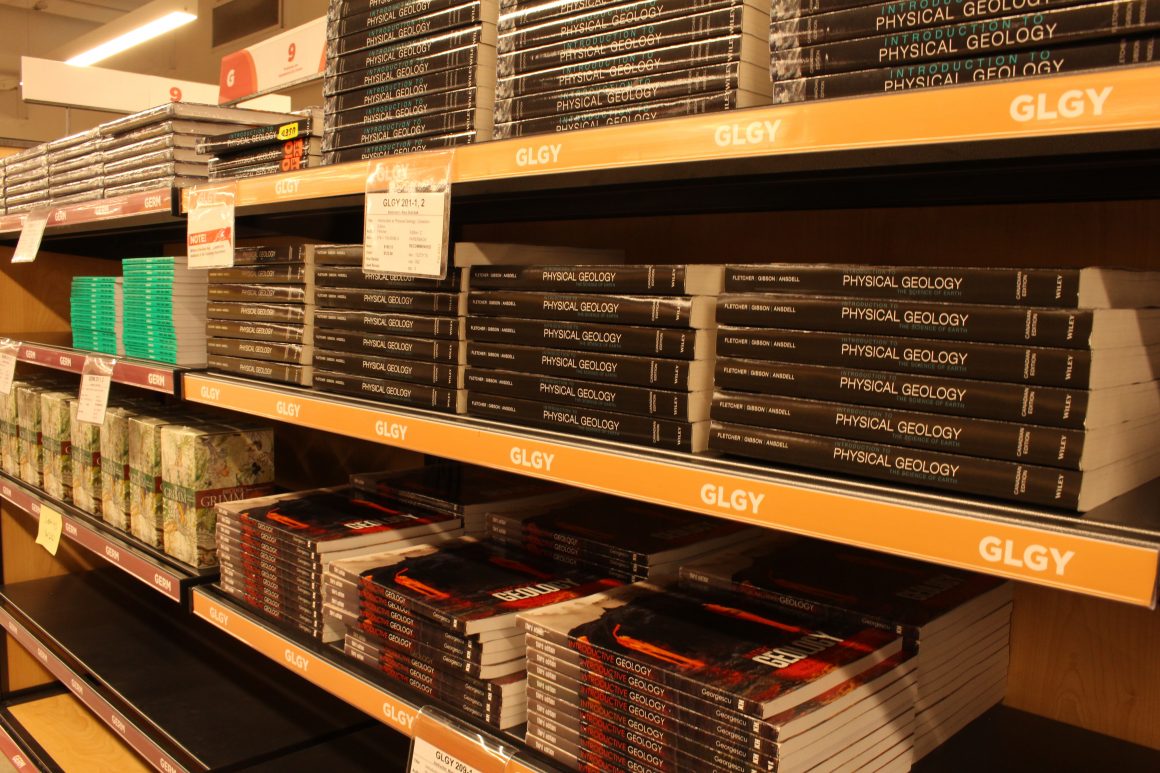
FROSH 2021: Should you buy your textbooks?
By Aymen Sherwani, September 7 2021—
Whether or not you should buy your textbooks every semester has always been somewhat of a controversy. For starters, many students have stopped buying physical copies of textbooks altogether as a result of the transition to online learning, and don’t see the point of paying hundreds of dollars for e-books for a single semester. For first-years wondering if they should be proactive and buy the textbooks that their professors have detailed in their course outlines before the class has even started, here’s a word of advice — don’t. Never pay full price unless you ultimately have to.
I know that it may seem like this is a new and shiny chapter in your lives and thus everything else should also reflect that, but consider the following: tuition is projected to increase by over 50 per cent for some programs by Fall 2022, alongside the potential privatization of the University of Calgary bookstore which is speculated to cause textbook prices to skyrocket. Buying new textbooks for every class and then realizing that your professor is only going to be using one chapter or testing heavily on lectures are just a few of the traumas that all students know a little too well. That doesn’t mean the incoming first-years have to navigate such a minefield either. Below are some cheaper alternatives to buying new textbooks every semester.
Searching for Your Textbooks on a Public Domain:
This is your first line of defense against having to pay for textbooks. Using legal public domains like Library Genesis to find free copies of assigned course textbooks has been my life saver for years. I once found an $80 textbook on their server and have never looked back since. The only drawback is newer editions aren’t readily available on the platform, nor are any textbooks from publishers with heavy copyright restrictions. However, if you are able to find earlier editions of your textbooks on a public domain, don’t hesitate to ask your professors if these are acceptable to use. Many professors are really understanding and try to accommodate you as best as possible.
Borrowing Textbooks from the U of C Library:
Ah yes, the library. Home of the commonly known third floor hangout spot and the less commonly known fifth floor bathroom where everyone goes to hook up. You might be wondering, who even goes to the library to sign out a book anymore? Broke university students that can’t afford to buy their textbooks, that’s who. You would be surprised at the amount of textbooks you can borrow at the library just to do your readings — the only drawback is that usually there are a limited number of copies available, typically restricted to a 2-3 hour checkout time, and are not allowed to leave the library. To find out whether your textbooks are available to be borrowed, visit the U of C’s library website.
Joining Your Program’s Textbook Exchange Group:
Another great alternative to breaking the bank and buying new textbooks is joining a textbook exchange group. Whether it is a concentrated group specifically related to your major or this general U of C Textbook Exchange with over 17.7K members, being part of a buy-and-sell community is a more comprehensive resource for obtaining textbooks. Here you would have the opportunity to compare textbook prices across multiple sellers, as well as potentially find sellers who include their course notes as part of a package deal. This is at a fraction of the cost you would pay buying brand new textbooks.
Renting Your Textbooks:
If you don’t want to go through the hassle of using a beat-up used physical copy or go through the anxiety of doing your readings at the library, one of the most cost-effective options is to rent out an online version of your assigned texts for the semester. Most students find that their textbooks remain relatively untouched after the course is over and don’t want to go through the hassle of trying to resell it or let it collect dust on their shelf. Renting your textbook through the U of C bookstore is a good option for physical rentals, but in my personal opinion, using an eTextbook reader like VitalSource is even more cost efficient with most rentals costing $30-40 for 5-6 months. This platform in particular allows you to highlight and bookmark sections that you’re currently studying as well as make flashcards. Personally, I don’t see anything better than this since I’ve been able to find almost every textbook I’ve needed on this site for an almost criminally lower cost than a new physical copy.
Bound and Copied:
If you’re the type of person who likes to hold onto textbooks and build up somewhat of a collection, then buying your books may not be a bad idea. A cheaper alternative to the U of C Bookstore would be the Students’ Union’s very own consignment service, also known as Bound and Copied. Aside from tending to your copying, printing and bindery needs, Bound and Copied allows you to buy and sell your used textbooks at a competitive price, and is operated by other students on campus. Sustainability wise, it’s a great option as most of the proceeds taken by the SU are reinvested back into programs and campus resources.
This article is part of our Opinions section
